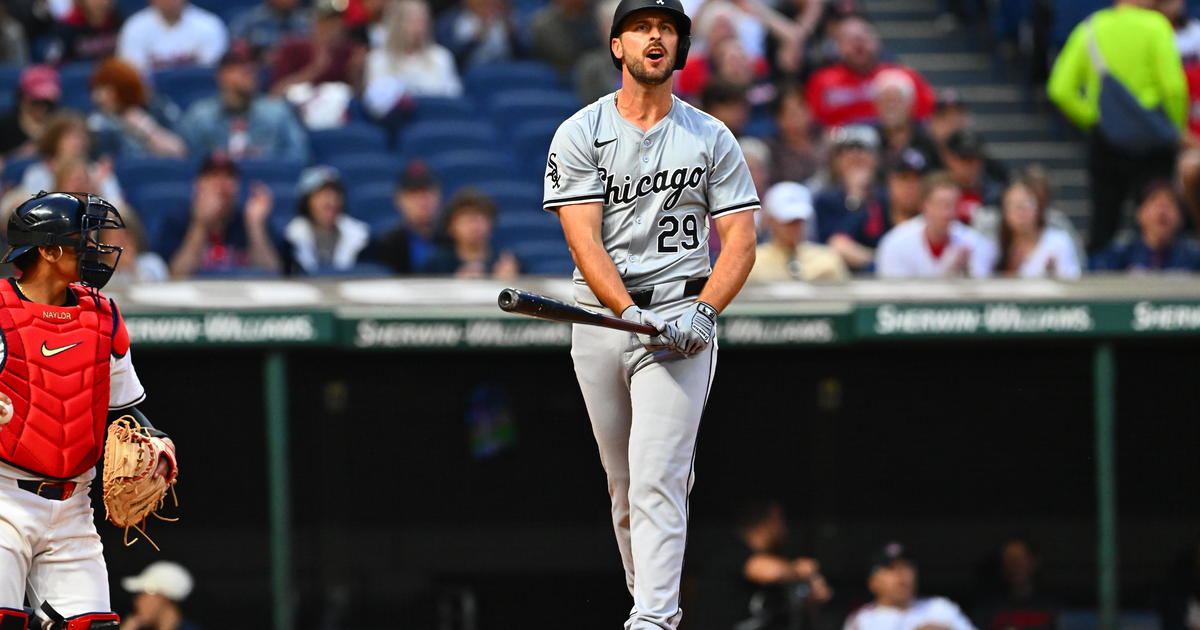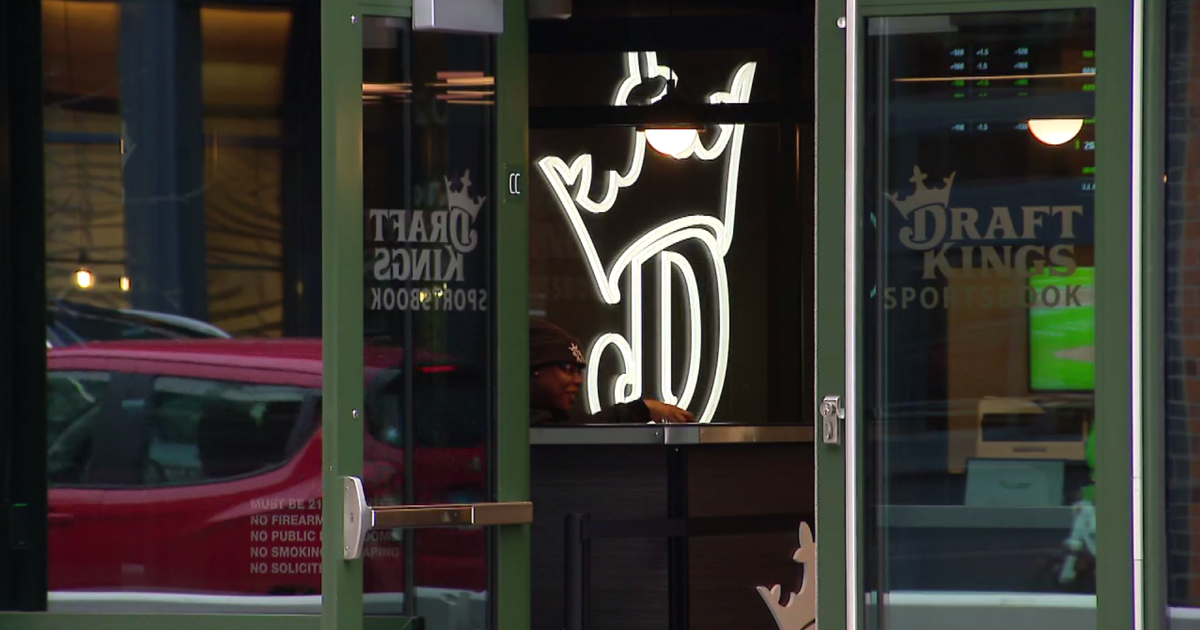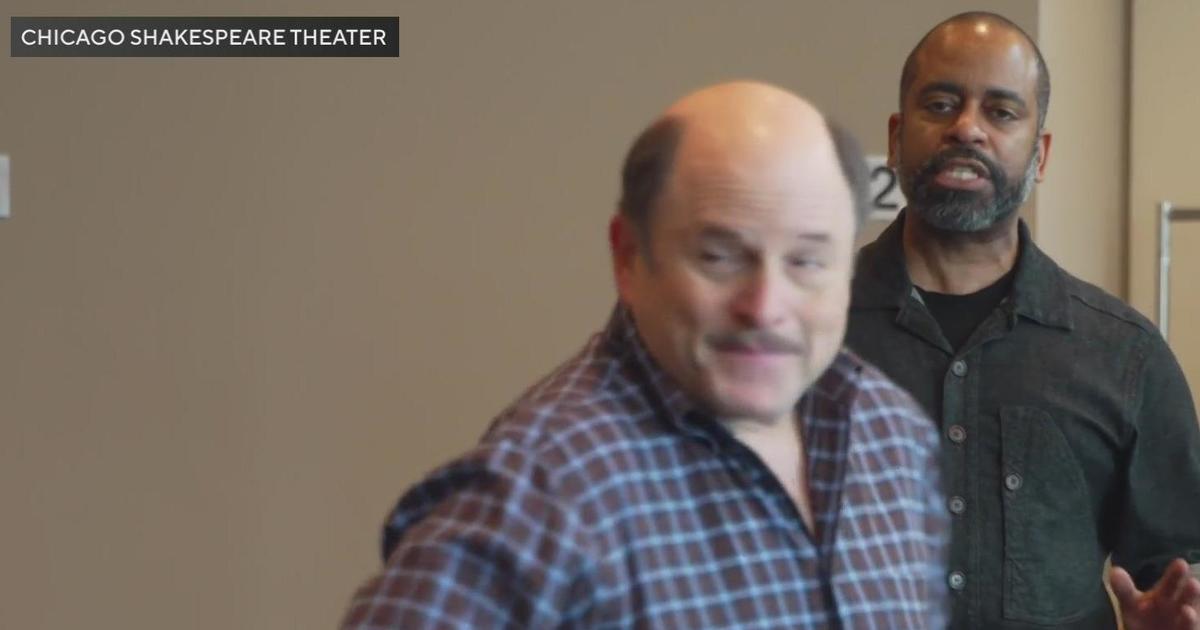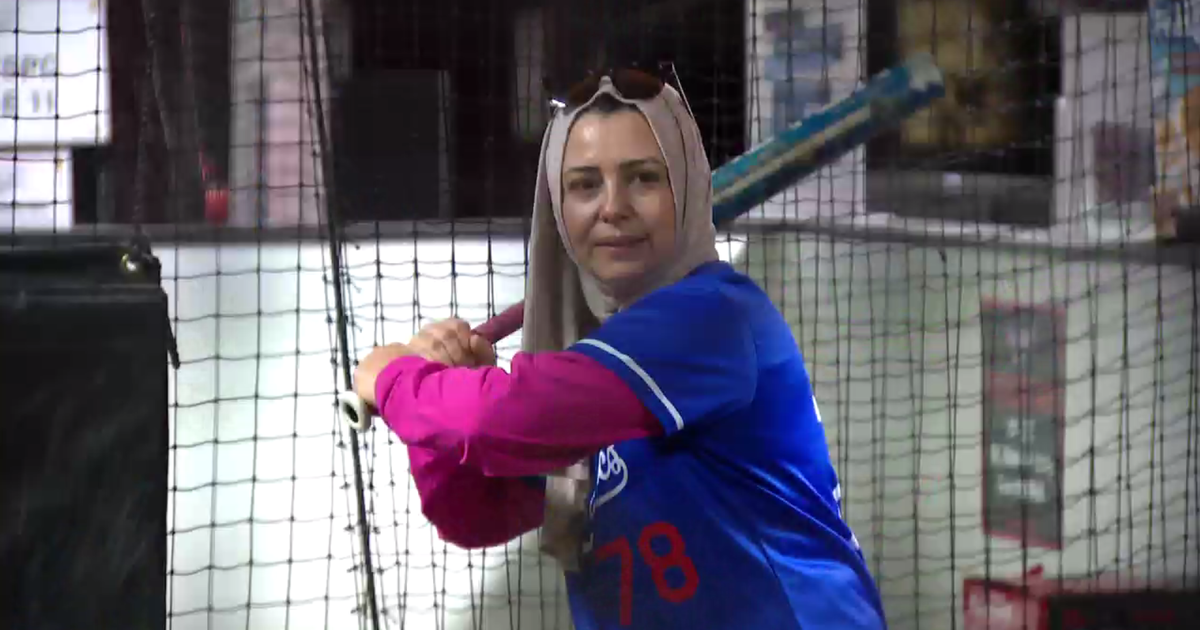Baffoe: So Some Are Mad That Colin Kaepernick Got An Award From A Magazine
By Tim Baffoe--
(CBS) "He's been vilified by millions and locked out of the NFL — all because he took a knee to protest police brutality. But Colin Kaepernick's determined stand puts him in rare company in sports history: Muhammad Ali, Jackie Robinson — athletes who risked everything to make a difference."
Thus begins GQ's piece "Colin Kaepernick Will Not Be Silenced," the article component to the magazine awarding him its "Citizen of the Year" honor. The article doesn't quote the currently unemployed quarterback, because he's standing firm in his belief that his words aren't most important. And by that, neither are the words of the rest of us when compared to action in the context of trying to make this world a better place.
Some of you are angry, though, about "Citizen of the Year" being applied to Kaepernick. The Angry Person's Cable News Network is angry about it, too. If a sports figure is going to be honored for model citizenry by a men's magazine — which is like two steps away from the Medal of Honor— it should be someone way more living room-friendly. Someone more … traditionally American.
What J.J. Watt of the Texans did for the city of Houston — raising $37 million via social media for hurricane relief — was fantastic and admirable. It won't do much to fortify against future storms that will be as bad, if not worse, nor the man-made policies that contribute them. It won't be able to combat the disaster capitalism already underway in which vampires will take advantage of the vulnerable in Houston the way they did after Hurricanes Sandy and Katrina and push through awful school policies and building practices that lead to the Grenfell Tower fire. Hopefully the money raised by Watt, while less than 0.05 percent of the estimated costs of Houston's damage, helps in ways a go-to organization like the Red Cross doesn't. Hopefully the money you donated wasn't through a place like that sitting in limbo or being used to buy stationery. You did donate to hurricane relief, right?
Talking about that stuff is uncomfortable, though. It takes away from the feel-goods of Americans joining their PayPals to help their fellow citizens in some small way from a distance. Even if those being helped still will have their lives upside down for a long time to come and bureaucratic red tape to deal with for longer than that.
It's oddly the sort of stuff Kaepernick would probably wish you were more cognizant of, because natural disasters disproportionately affect the poor in the long run. As does being displaced from one's home, be it from a storm or an American system of discriminatory and predatory housing and loan policies. Kaepernick has donated his own money to fighting such a problem.
He's donated a lot of his own money and footsteps to various causes -- not just asked others to give theirs. The former San Francisco 49er has also sacrificed future earnings, both in the form of endorsements and any future NFL paycheck that he will likely never receive again. For his work -- and it is work -- he has lost a job making huge money playing a game better than several currently rostered quarterbacks. It's all on behalf of the betterment of others. This is selflessness. This is supposedly everything you were told as a kid at school and in your house of worship about what it means to be a model American and good person.
The catch is that you could've been told that in problematic contexts. Most charity is performed by convenience -- helping the less fortunate while keeping them at a distance and probably stigmatizing them while you're at it. You may have learned at a young age to quietly despise the poor, be they poor in money or opportunity. You may have learned they had a place in this world, and it wasn't near you. Donating money to a charity that fed or clothed people you'd never need to have a meaningful interaction with was enough moral inventory. It may never have been demanded of you to consider why there are poor or homeless in perpetuum. They just are, sure as there are green apples. It's just the way the world -- yours and theirs -- is. At least your donation might get someone an ugly coat for the winter while never turning your mind to why a supposed great country allows so many people to go cold.
What's the sacrifice in that donation, though? Any dollar sent to a worthy cause is a good thing, make no mistake. Much better than #thoughtsandprayers, for sure. You're busy and can't always give time to causes, so bucks will have to do. But it doesn't involve risk or personal compromise. Sending a call to social media followers to help -- while a great use of the platform -- is no heavy undertaking in and of itself.
Using a platform to enact social change is much different. Can you honestly say you would knowingly risk your job to help strangers? Or would it be more comfortable to use social media to raise money for cancer treatment without asking yourself why everyone in America can't get free cancer treatment? Or why someone's insurance company can jerk them around and profit after wind and water destroy their home? Or why Puerto Rico is hardly even at the insurance stage yet because its Americans are considered "other"?
Kaepernick is unemployed because the well-being of fellow American citizens is more important to him than football. Putting them ahead of himself and deflecting interview opportunities while praying with his feet and his wallet has cost him a paycheck larger than that of almost everyone reading this.
Yet some feel he's undeserving of being called "Citizen of the Year."
Oh, the pig socks and Fidel Castro shirt. Yes, how terribly those pieces of clothing disenfranchised other groups of people. Those were both bad choices by Kaepernick. Such happens in the early stages of someone's social awakening. During the process of educating oneself -- more of the actual work he's putting in to be a learned person -- zealotry can override. A new radical will often go too hard in paint. Ali wished he could have a few words back later in his life.
But a decades-old epithet for perceived authority figures and a dictator who overthrew the American-friendly dictator don't negate the work. Years from now, Kaepernick will be looked at in the same vein as Ali, Tommie Smith and John Carlos and Robinson, sports figures who endured similar criticisms in their day only to have history predictably prove those critics fools.
Robinson, a veteran, even wrote in his autobiography:
Today, as I look back on that opening game of my first world series, I must tell you that it was Mr. Rickey's drama and that I was only a principal actor. As I write this twenty years later, I cannot stand and sing the anthem. I cannot salute the flag; I know that I am a black man in a white world. In 1972, in 1947, at my birth in 1919, I know that I never had it made.
Because Kaepernick's efforts are largely focused on "inconvenient" groups and not so much the important but "easy" charities of cancer battles and natural disaster relief, his efforts are viewed by some as lesser. Because who he's sticking up for are considered lesser. Emotional hierarchies are placed on worth of charity. If you value dollars over people, dollar figures are equal to the amount of good accomplished. In that case, the $37 million accumulated from many people is more important than $1 million spent by one uppity quarterback on problems you'd rather plug your ears about. It's a case of raising awareness of topics we're already well aware of against those we try to ignore.
It reminds of the ESPY controversy with Caitlin Jenner, another subjective annual award that some vicariously live through, believing the only worthy recipients of accolades are those who touch on a certain pathos near to your own myopic heart. A soldier who's far more likely than civilians to commit suicide because of the awful medical help this great country provides veterans after asking them to conduct acts not fit for the human psyche is more heroic than someone whose presence in public the public eye might stop a child in the LGBTQ community from committing suicide. This seems so simple to you.
You swear that all lives matter. But by the dollars you donate or the dollars allotted by the politicians you keep voting for, some lives just matter more than others.
Watt didn't ask for anyone to use his work as a measuring stick, and doing so not only dismisses what Kaepernick has done but turns Watt's efforts into a tool of the culture wars instead of the good deed that should stand on its own. Those calling for Watt to be honored by a magazine that most don't read anyway situates his deeds in their world, one in which it's possible their house could be destroyed by act of God or man, where their loved one can get cancer or be injured in combat. That world doesn't involve police violence or a school without toilet paper or a lack of a green grocer or a closed mental health clinic or plea bargains for want of a decent lawyer.
That's a whole other country. And some believe the award-winning Kaepernick is further pushing apart the two Americas by hardly saying a word.
The roots of division are elsewhere, occurring when you choose to turn your back on and take steps away from the issues Kaepernick wants to have an honest discussion about. Anyone is welcome and encouraged to move closer to the conversation, to help bring together the separate worlds and work toward an understanding. Otherwise, the division is on you, not him or anyone else bringing up difficult truths.
Someone worthy of being dubbed "citizen" in the truest sense of his or her country's betterment gets that. The other individual gets mad about a magazine cover.
Tim Baffoe is a columnist for CBSChicago.com. Follow Tim on Twitter @TimBaffoe. The views expressed on this page are those of the author, not CBS Local Chicago or our affiliated television and radio stations.



